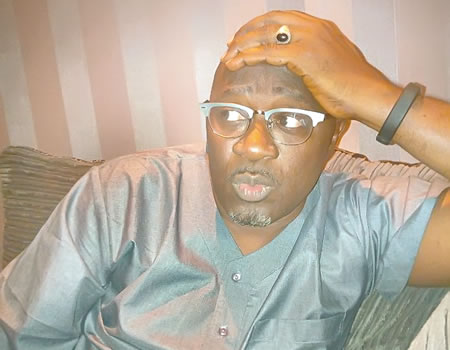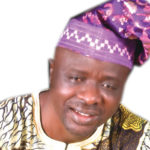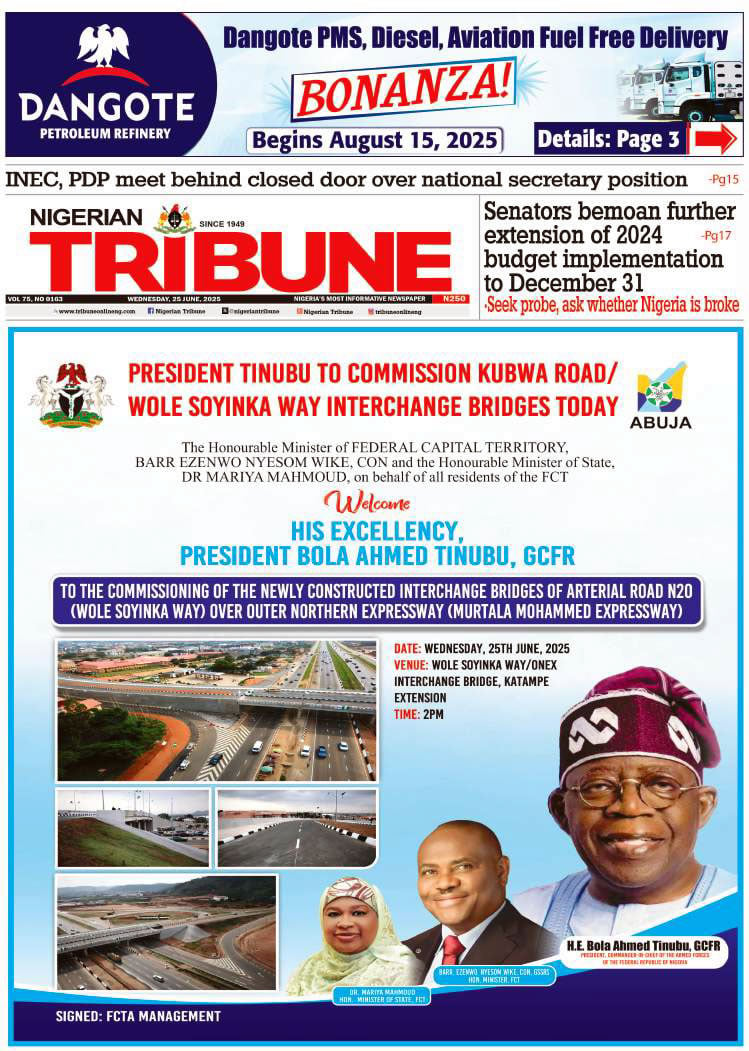
A little over a year ago, you took over the leadership of the National Broadcasting Commission (NBC) as its Director General. How far has the journey been?
Actually I was appointed on May 25, 2016 and in the last one year, what I have done, as much as possible, is to learn the institution, the processes and the people. It has been a very challenging one year for me to the extent that I also have to, as they say, hit the ground running. I inherited a national project; the digital switch over project.
They have done the pilot phase a month before I came into the commission. So, I had to study what has been done and to begin to take it forward from there. On the other hand also, the digital switch over process seemed to be something that is larger than life. So, a lot of time, there were some people who even saw it as the main duty of the NBC. But as you know, at the NBC, our duty is to license, monitor and regulate broadcasting.
So, over the last one year, we have been trying as much as possible to be on top of our game in terms of all these areas of endeavour. We have 10 zonal offices and 24 state offices across the country. I have also taken time to visit as many of these offices as possible.
Within the one year of your administration, can you say categorically that NBC has delivered on its mandate, broadcasting having been in existence in the country 82 years ago?
On the 24th of August, 2017, the NBC itself will be 25 years old and so, it is going to be celebrating its silver jubilee. You are talking about an institution that is 82 years old, but, as you know, it started as a colonial monopoly. I have worked in the broadcasting industry in Nigeria over the last 40 years. So, I have a fair idea of how the institution is being operated, I mean as a public service and as an institution of media; as a national platform to educate, inform and entertain as we normally say. I think what has been done was that, as from 1992, the Nigerian government took a decision to deregulate the industry and move it away from state monopoly and open it up for private sector participation.
From being, first of all, a post-colonial monopoly to a post-colonial state monopoly, we now have about 793 radio stations in Nigeria and that tells you how much the industry has opened up. This has happened as a result of the deregulation which was started in 1992 and the institution of the National Broadcasting Commission itself. So, the exponential growth in the broadcasting industry has been related, also, to the formation of NBC itself and the institution had to start as a regulator at a point when the industry was also opening up. So, there is a sense in which it has been locked with the development of the industry and I think, to a large extent, the NBC has helped to regulate the industry.
How are you tackling the problem of technological backwardness in the broadcasting industry, though not peculiar to it?
As you rightly said, technological backwardness is rooted in the fact that we have an underdeveloped country. We have not placed much premium as much as we can on the development of science and technology and the development of a scientific worldview. That is a problem in all developing countries and they vary in terms of how seriously they affect the development or underdevelopment of these different countries.
But what happens is this: if we give you a license to start a radio or television station, what you do is that you go out there to import your equipment and come and operate your radio or television station.
What the NBC engineer then do is to ensure that you meet certain basic standards and our engineers are trained to ensure all of that properly. So, when you import your equipment, they will make sure that, one, you meet the basic standards in terms of transmitter power; you are getting the right sets of equipment; you have cooling system in the studios; you have First Aid system; you have all kinds of facilities to make sure that workers are working in a very safe environment. We do all of that. But science and technology is a problem of all underdeveloped countries. We have not done a technological revolution that allows us to produce this equipment in our own country.
You earlier mentioned the role of the NBC as a regulatory agency. How do you define this role in the face of the increasing call for market liberalisation in the industry?
The period that the NBC was established also coincided with the period that the national economy was being opened up more and Nigeria’s ruling class had taken a decision that we will have a market-driven economic process. So, it was in that process also that broadcasting was opened up. It doesn’t matter the nature of the economy, whether it is authoritarian or it is a command-based economic structure, where you have a broadcasting industry that has been deregulated and you have a lot of stations, then you also have the obligation to also have an institution that will be able to, first of all, license stations and to regulate them.
There used to be this Not To Be Broadcast (NTBB) rule which seeks to regulate and control what comes on air. But nowadays it seems the rule has gone into extinction because we are now listening to some kind of music which naturally not come on air…
Even on that, I can assure you that if a song is broadcast and the NBC determines that it is NTBB; that is what I said about all extant laws.
If some videos are coming on air which, if it is not classified by the Nigerian Film and Video Censors Board (NFVCB), it would not be allowed to be broadcast because their duty is to ensure that you do not use pornographic materials. The board regulates video and film and we work together because once they classified a video, that is what will determine whether or not it can be broadcast on radio or television in the country.
Occasionally, and this happens, such a video slips through, but as soon as we discover that it slips through, we clamp down. So, we do this on a regular basis, but, sometimes, a few things can slip through and it is almost like a case of terrorism. When there is a terrorist attack, everybody complains, ‘oh, the government is not working’. That security system has been able to prevent hundreds and hundreds cases of, maybe, terrorism, but nobody knows. It is the one that slipped through that everybody now talks about. It is the same way with policing the airwaves.
In seeking to police the airwaves, don’t you envisage the NBC, as regulatory agency, encroaching on the freedom of broadcast journalism?
The space of freedom for broadcast journalism is incredible, but the duty of the broadcast journalist is to walk the narrow and straight path of obeying the law. It is as simple as that. You don’t say what you like on radio’ you say what is lawful on radio because broadcast materials, when it is not properly edited, could be libelous materials and you can be taken to court. That is on the one hand. On the other hand, our own duty is to ensure that you did not disrupt the order of the Nigerian society and that is the way it is.
How do you see the challenges of the social media generally on the practice of journalism?
Let me make this clear to you: The NBC does not regulate the social media. The social media is regulated by the National Communications Commission (NCC). But I am a broadcaster and a journalist; I was an editor of a newspaper; the chairman of the editorial board of two newspapers. So, I understand what you are talking about. It is a world of tremendous changes in terms of the way journalism is evolving. In 2010, I was attending the World Editors’ Forum in Hamburg, Germany. We went to a newspaper and I was looking at the history of their online format and I discovered that there is so much movement away from the print content to the online platform because it offers opportunity for the immediate transmission of news.
It influences the way we practice our profession as journalists. But our duty is to adapt to that reality and make it a new format to be able to present news in a new way. It is work in progress for all of us in journalism, but it is the reality of the world. Sometimes, a lot of horrible things are posted, but without balance, I am for an open platform of democracy in online journalism. This is because the moments you begin to clamp down, then you begin to infringe upon the democratic practice in the society.
But in regulating, the Nigerian government has to take a decision; the Nigerian thinking must go into this to be able to do it properly.
Do you have any interest in politics?
I have a master degree in Political Science and I am going to have a PhD in Political Science. So, I am a very political person and I follow politics intensely. I think you cannot change the world without being part of the process. That is all about my interest in politics.
So that means you don’t want to play any active role in politics?
I have not said that. I will give my all to what I am doing at the moment and then wait for what comes after that and I will take my decision appropriately.
But you were rumoured to be eyeing the highest political office in Kwara State in 2019. How far is this true?
I never signified any interest in that position. You know it is a very interesting story. People see me and they will say, ‘we heard you are trying to go for the governorship in Kwara State’, but I don’t even belong to any political party. Do you know the truth? My conception of politics is that capitalism is not working and the neo-colonial form of capitalism is even worse. I believe in the political party that is socialist in content and that is based on the working people and the poor. We do not have such a political party really in the mainstream in the country. What we have are small-level socialist parties, but I believe that we need to organise such parties at the national level and give opportunities to build the country on the basis of social justice. This, for me, is an irreducible minimum. I think our country has tremendous opportunities for change and for development. But it will not come with this kind of political economy choices we have made.





